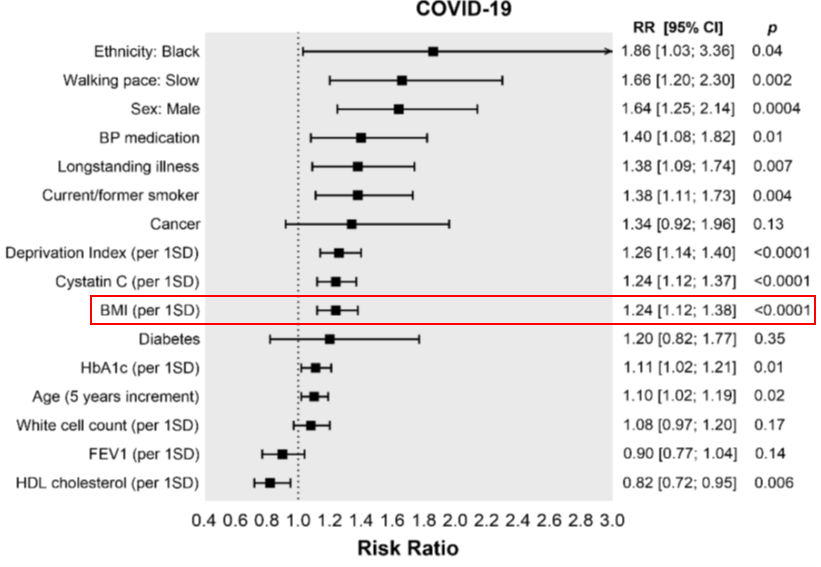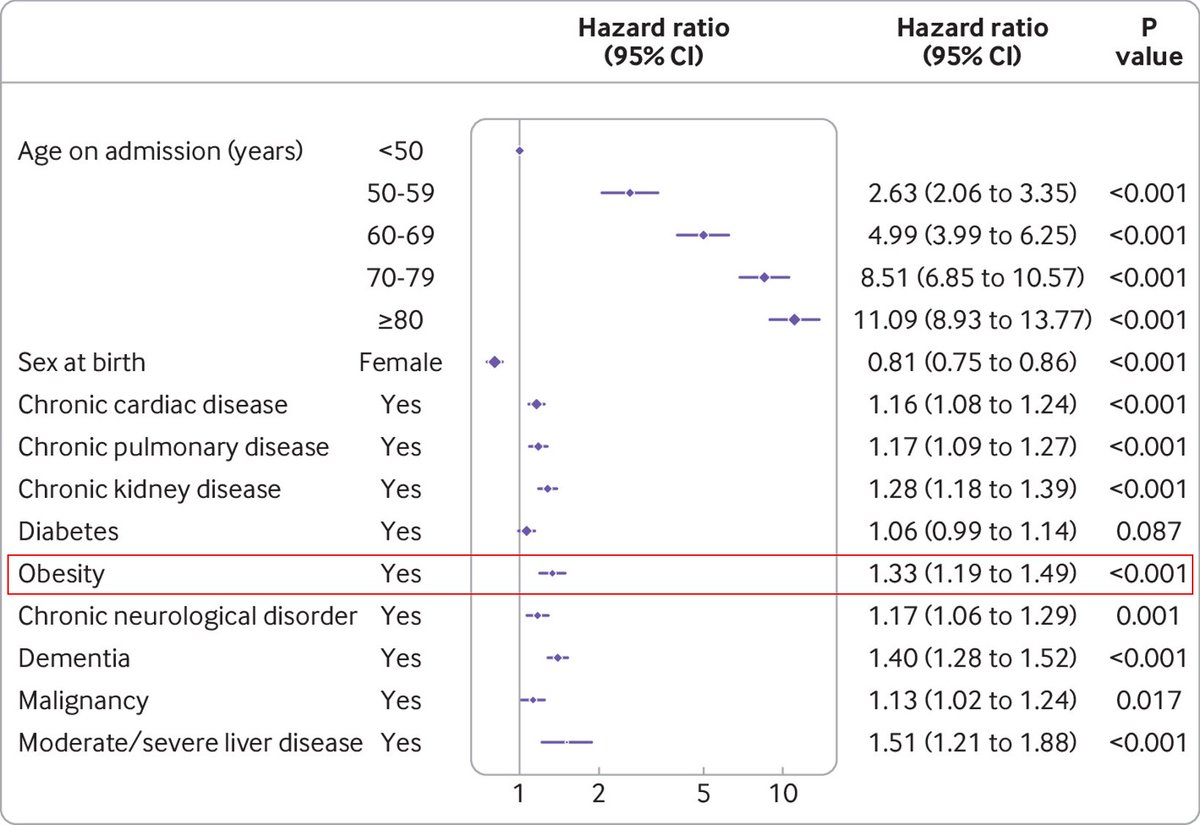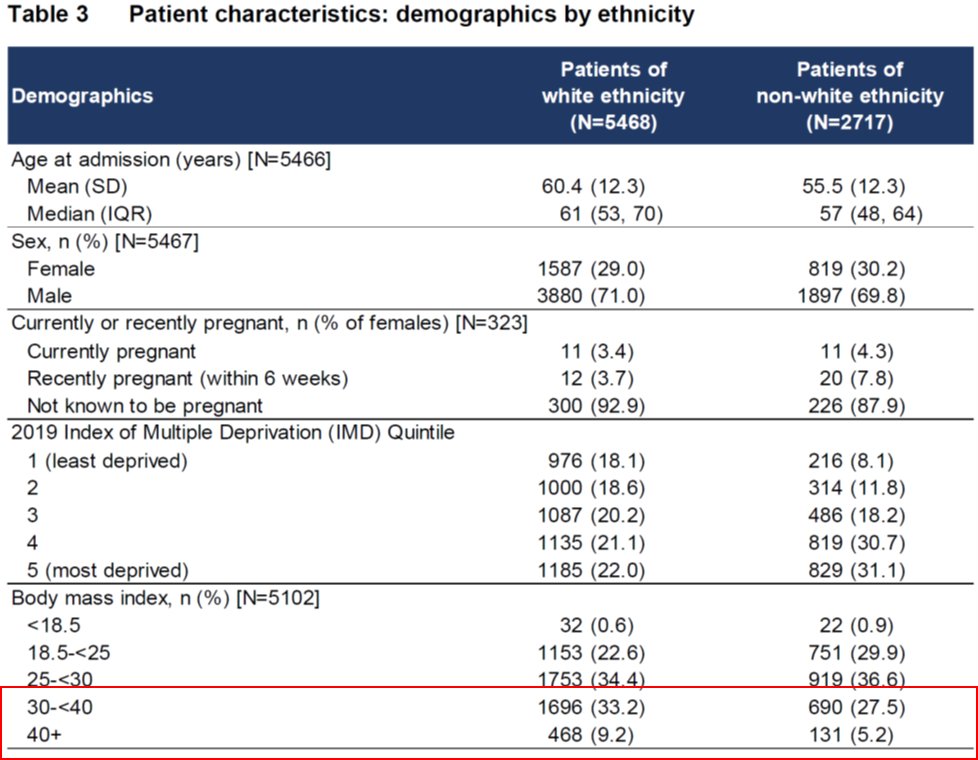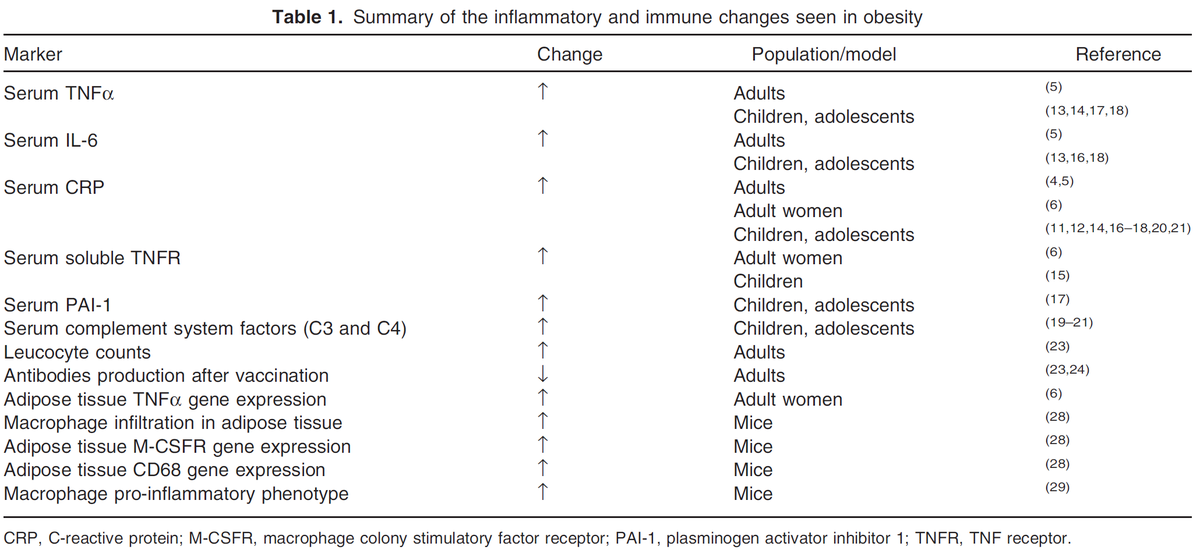UK PM Boris Johnson has declared a “war on fat” after confronting the role his #obesity played in his harrowing encounter with #COVID.
In this #tweetorial, we’ll take a closer look at the studies sounding the alarm in the UK.
#medthread #MedTwitter
thetimes.co.uk/article/boris-…
Ho et al. (pre-print) studied 428,225 subjects in the @UK_Biobank of which 340 had confirmed #COVID.
BMI had a risk ratio (RR) of 1.24 (per 1SD). Obesity itself had a RR of 2.29.
medrxiv.org/content/10.110…

To put this in context: for every 4.5 point increase in BMI, the risk of hospitalization from #COVID increases by almost 25%!
Docherty et al. studied 20,133 COVID-19 patients across 208 UK hospitals in @bmj_latest.
Other than age, the top 3 risk factors for mortality were:
🔹Liver disease: hazard ratio (HR)=1.51
🔹Dementia: HR=1.40
🔹Obesity: HR=1.33
bmj.com/content/369/bm…

These are harrowing statistics! The economic impact is also substantial. 👇
@ICNARC tracks ICUs across the @NHSuk.
As of May 22, 39% of the 9,026 #COVID patients in the ICU have obesity. The average length of stay (LOS) in the ICU is 8-10 days.
icnarc.org/Our-Audit/Audi…

Reports from multiple countries point to a two-fold increased need of ICU-level care in #COVID patients with #obesity.
medscape.com/viewarticle/92…
⬇️BMI by ~5 points would likely reduce the requirement for ICU-level care by half.
This would lead to ICU savings of £30 million or £8,500 per ICU patient with obesity.
(this is a small piece of the pie, as it does not include all the cost savings across @NHSuk of ⬇️BMI)
So is it feasible to declare—and fund—a “war on fat”?
Yes, absolutely.
The immediate potential cost savings and health benefits are substantial.
The long-term benefits could change the public health of an entire nation.
However, we have waged “wars on fat” and “battles of the bulge” in the past and have failed.
What makes this time different?
Second, at the highest levels of government and in board rooms across the world, #obesity is on the agenda for key stakeholders who can coordinate a wide-scale response.
Third, innovation in the health and wellness space in the past decade has led to the development of technology that can support a population-wide weight loss initiative.
Finally, and most importantly, consumers are more aware of the benefits of living life at a healthier BMI.
What we need now is a coordinated effort from patients, providers, scientists, legislators, entrepreneurs, and advocates to tackle obesity head-on.
The time is now!



